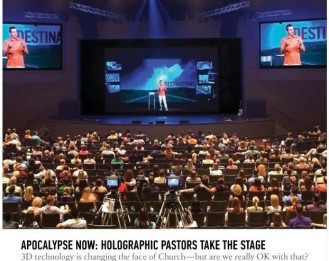The United States is the most radical society in the world. It is in the process of conducting a vast, uncontrolled experiment which poses the question, Can a society preserve any of its traditional virtues by submitting all of its institutions to the sovereignty of technology?
Neil Postman, The Conservative Outlook, from Conscientious Objections, p. 107
I don’t think Postman phrases his question perfectly. The question should probably more along the lines of ‘Can a society preserve any of its traditional virtues as it submits all of its institutions to the sovereignty of technology?’
When posed that way, the question becomes a little more tricky. First, we have to ask the question of whether or not technology has truly become sovereign in our culture. Does technology have supreme and ultimate power? I answer yes and no.
Technology has become sovereign in the sense that we elevate its worth and often declare it to be infallible. Technology has not become sovereign in the sense that they are generally, as McLuhan said, ‘extensions of man.’ They are means through which we express our own self-conceived sovereignty, extend our reach, increase our comfortability, and impose our will and desires on others. In other words, to paraphrase 1 Corinthians 13, they allow us to inflate ourselves and impose ourselves on others. In this sense, man is sovereign and technology is his scepter and herald.
But, again, Postman has a point. As has often been said, by Henry David Thoreau, McLuhan, and Postman himself, the danger is that we tend to become tools of our tools. And, as we do, to quote C.S. Lewis, when we turn something into a god, it will become a demon. When we make idols out of man-made things, God will give us over to our plunderers, and they will do what plunderers do: plunder (see Judges 2).
So the ultimate answer is, No, we can’t hold to traditional values as we submit our institutions to the sovereignty of technology. This has been demonstrated clearly in recent decades. But the problem is just as much with individuals as with institutions. And the problem isn’t really technology itself. Five hundred years ago all of the West’s institutions submitted to the sovereignty of the printed word on account of the newly invented technology of the printing press. Was that a bad thing? Did that ruin the culture? I guess it depends on who you ask. Haters of Martin Luther and Protestantism might think it ruined the culture. I do not count myself among them.
The problem is with our idolatrous desire to exalt gods that are no gods. Turn something into a god and it will become a demon. Technology under the lordship of Christ is technology kept in its place. But in order to keep technology under his lordship, we must be under it first.
I would also add that being a ‘conservative,’ in Postman’s thinking, means fighting to conserve tradition. That doesn’t equate to a lot of things modern ‘conservatives’ fight for. Anyhow, we must be careful that we don’t exalt ‘traditional values’ too highly either. Our culture’s traditional values are no god. They may be good or bad, and some are definitely good, but they are no god. Hence the need to constantly go back to the Word of God, which is always timely.



